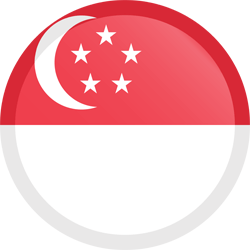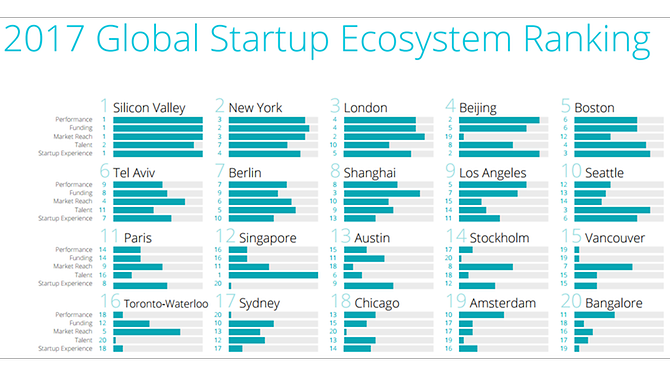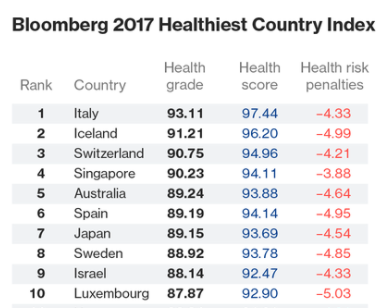
Singapore is Asia’s most competitive country with the best investment potential
Total Population : 5.6m | Total Land Area : 719 sq km | GDP : US$297 billions
Small city, Big Opportunties
Singapore consistently outranks the world as one of the cities with the best investment potential
In its BERI Report 2016-I (April 2016), US-based research institute Business Environment Risk Intelligence (BERI) ranked Singapore first out of 50 major investment destinations in a ranking that assesses operations, politics and foreign exchange.| Ranked By +5 Years | 100=Perfect Country | Present Combined Score | +5 Years Combined Score |
| 1 | Switzerland | 73 | 73 |
| 2 | Singapore | 73 | 72 |
| 3 | Germany | 66 | 69 |
| 4 | Norway | 65 | 69 |
| 5 | Taiwan | 66 | 68 |
| 6 | Austria | 64 | 66 |
| 7 | Canada | 63 | 65 |
| 8 | Netherlands | 64 | 65 |
| 9 | United States | 59 | 64 |
| 9 | Korea (South) | 60 | 62 |
| 10 | Ireland | 55 | 61 |
Note: The POR is based on a combined score of the +5 years ratings derived by adding the 1) Operations Risk Index (ORI) 2) Political Risk Index (PRI) 3) Remittance and Repatriation Factor (R Factor) and dividing by three.
The ease of setting up a company in Singapore is a clear advantage when it comes to choosing the best place to do business.
According to the Doing Business 2015 Report by the World Bank, Singapore is the easiest place in the world to conduct business
| Economy | 2015 Rank | Score |
| Singapore | 1 | 88.27 |
| New Zealand | 2 | 86.91 |
| Hong Kong | 3 | 84.97 |
| Denmark | 4 | 84.20 |
| Korea | 5 | 83.40 |
| Norway | 6 | 82.40 |
| United States | 7 | 81.98 |
| United Kingdom | 8 | 80.96 |
| Finland | 9 | 80.83 |
| Australia | 10 | 80.66 |
It is partly due to the hassle-free way in which administrative matters are handled. Singapore helps simplify the process of setting up by making it simple to incorporate a company and register for taxes by using the same online form. Forms for construction permits, new workplace safety and healthcare regulations can also be submitted online. In addition, Singapore eased property registration by improving on its computerised system.
Economies are ranked on their ease of doing business, from 1-189. A high of doing business ranking means the regulatory environment is more conducive to the starting and operation of a local firm, The rankings are determined by sorting the aggregate distance to frontier scores on 10 topics, each consisting of several indicators, giving equal weight to each topic. The rankings for all economies are benchmarked to June 2014.
Singapore leads the pack among the rest of the global economies when it comes to maintaining its competitive edge
| Rank | Country | Score |
| 1 | Switzerland | 5.76 |
| 2 | Singapore | 5.68 |
| 3 | United States | 5.61 |
| 4 | Germany | 5.53 |
| 5 | Netherlands | 5.50 |
| 6 | Japan | 5.47 |
| 7 | Hong Kong | 5.46 |
| 8 | Finland | 5.45 |
| 9 | Sweden | 5.43 |
| 10 | United Kingdom | 5.43 |
According to the Global Competitiveness Report 2015 – 2016 by the World Economic Forum, Singapore is the best in Asia in terms of lack of corruption and high government efficiency. It is also recognised for the strength of its goods and labour markets; leading globally in terms of financial market development. The country’s competitiveness is further reinforced by world-class infrastructure with excellent transportation facilities and a strong focus on education that provides personnel with the skills needed for a rapidly changing global economy.
That Singapore outranked San Francisco may come as a surprise, given Silicon Valley's undisputed position as the startup capital of the world. San Francisco scored highest on the startup ecosystem and salary metrics, but it was among the lowest of the cities ranked for cost of living and quality of life.

But those who have been following Singapore's rise as a startup and innovation hub may be less shocked by the results. Earlier this year, Startup Genome's Global Startup Ecosystem Report declared that Singapore had unseated Silicon Valley as the number one place in the world for startup talent.
While companies sometimes struggle to recruit advanced software engineers and tech talents in developing Southeast Asian markets, Singapore boasts a young but experienced cohort of software engineers, according to The Straits Times. As another Forbes contributor noted last year, the city-state is advantageously positioned in addition to being among the wealthiest communities in the world. Thanks to its advanced infrastructure, highly educated workforce (Singapore was said to have the world's best education system in 2015) and proximity to a number of emerging and developed markets, Singapore became a natural hub for tech companies and investors.
Source: Best Start Up Cities by Nestpick
By 2020, Asia is expected to account for 60% of global trade flows, shifting the focus away from Europe and North America. Strategically located at the heart of Asia, Singapore is right in the middle of key trade flows from Europe, the US, the Middle East, Australia and Asia which will further cement its position as a global trading hub.
Asia University Rankings 2017: Top 10
The National University of Singapore is the top institution in the continent for the second year in a row.The rankings, which have been expanded to include 300 universities, up from 200 institutions last year, suggest that these countries have the potential to follow in the footsteps of Asian higher education powerhouses such as China and South Korea.| 2017 Asia rank | 2016 Asia rank | World University rank 2016-17 | University | Country |
| 1 | 1 | 24 | National University of Singapore | Singapore |
| 2 | = 2 | 29 | Peking University | China |
| 3 | 5 | 35 | Tsinghua University | China |
| 4 | = 2 | 54 | Nanyang Technological University | Singapore |
| 5 | 4 | = 43 | University of Hong Kong | Hong Kng |
| 6 | 6 | 49 | Hong Kong University of Science and Technology | Hong Kong |
| 7 | 7 | 39 | University of Tokyo | Japan |
| 8 | 10 | = 89 | Korea Advanced Institute of Science and Technology (KAIST) | South Korea |
| 9 | 9 | = 72 | Seoul National University | South Korea |
| 10 | 8 | = 104 | Pohang University of Science and Technology | South Korea |
Source:Times Higher Education Asia University Rankings 2017
Singapore - a magnet for rich people
- A progressive tax rate starting at 0% and ending at 22% above S$320,000.
- There is no capital gain or inheritance tax
- Individuals are taxed only on the income earned in Singapore (including rental income). The income earned by individuals while working overseas is not subject to taxation barring few exceptions.
- Tax rules differ based on the tax residency of the individual.
- Tax filing due date for individuals is April 15 of each year
According to the Quality of Living Worldwide City Rankings in the Mercer Survey 2017, Singapore remains the highest ranking city in the Asia-Pacific region and ranks first in the world for city infrastructure, followed by Frankfurt and Munich both in 2nd place.
Source: Mercer's Quality of Living Ranking 2017

Earlier in 2017, the venerable New York Times wrote a piece, “Make America Singapore“, about how the American healthcare system that is currently being overhauled by the Republicans can achieve better results by becoming more like Singapore. NYT wrote:
There is Singapore, whose health care system is the marvel of the wealthy world. Singaporeans pay for much of their own care out of their own pockets, and their major insurance program is designed to cover long-term illnesses and prolonged hospitalizations, not routine care. The combination has produced genuinely extraordinary results: The island state has excellent health outcomes while spending, as of 2014, just 5 percent of G.D.P. on health care. (By comparison, a typical Western European country that year spent around 10 percent; the United States spent 17 percent.)






